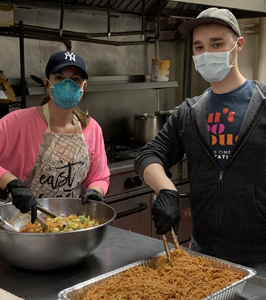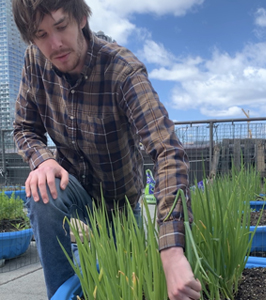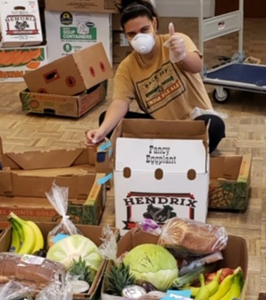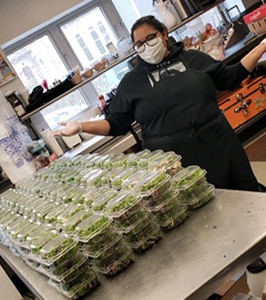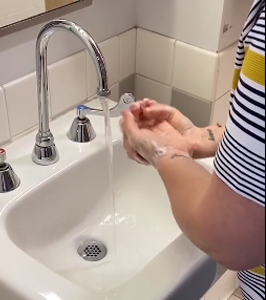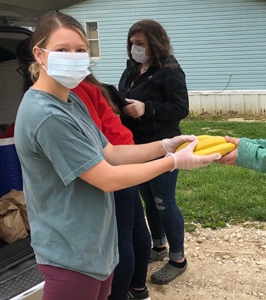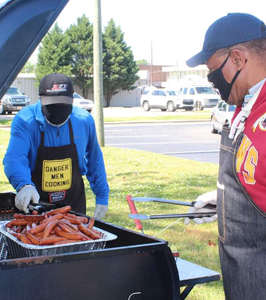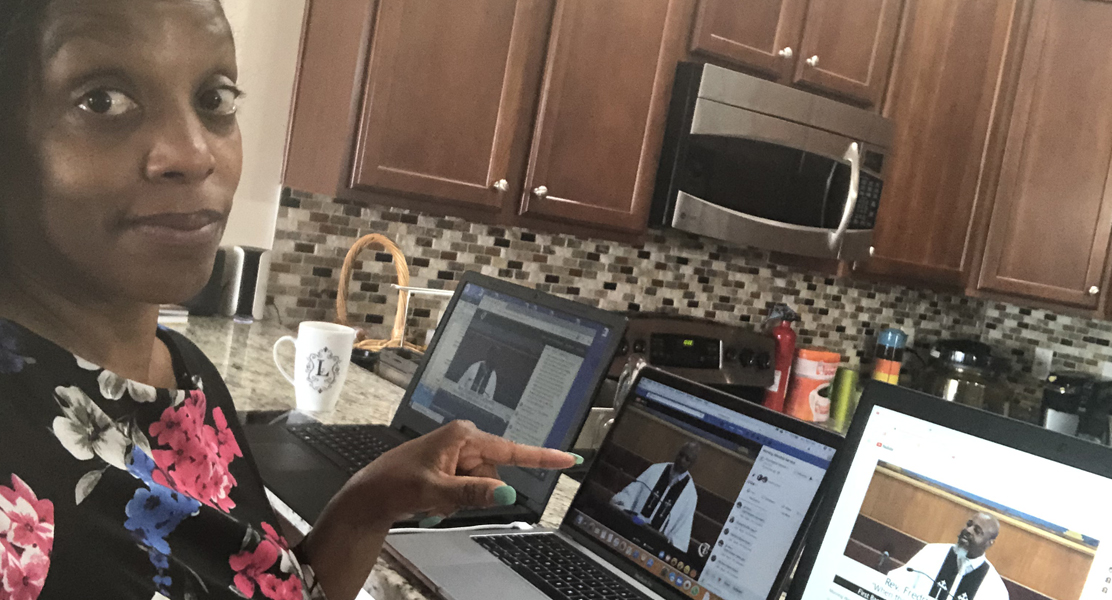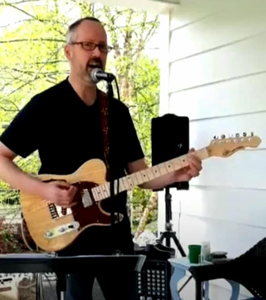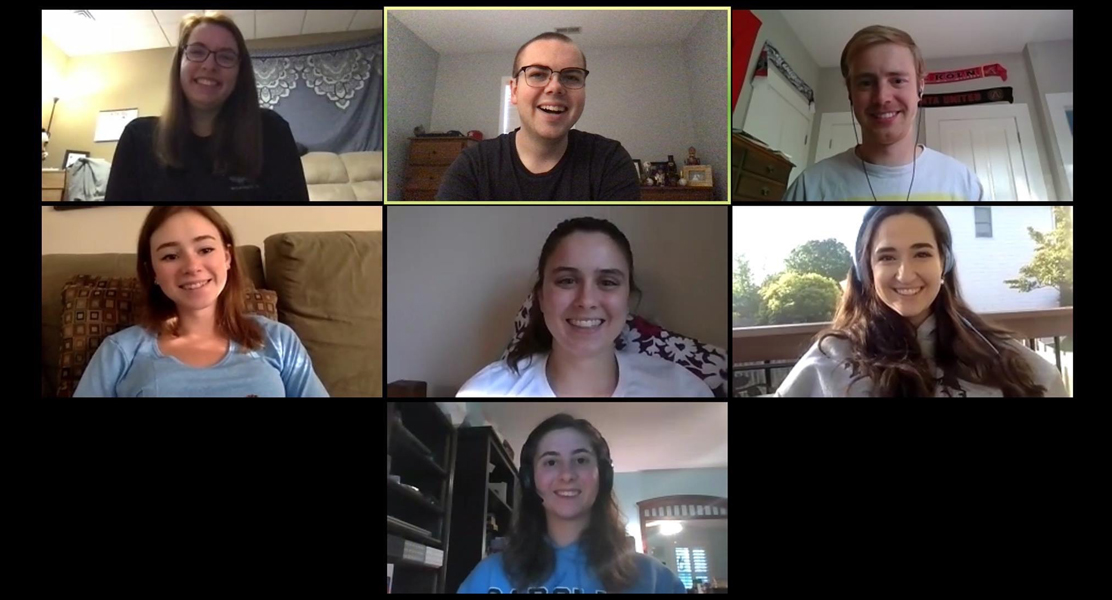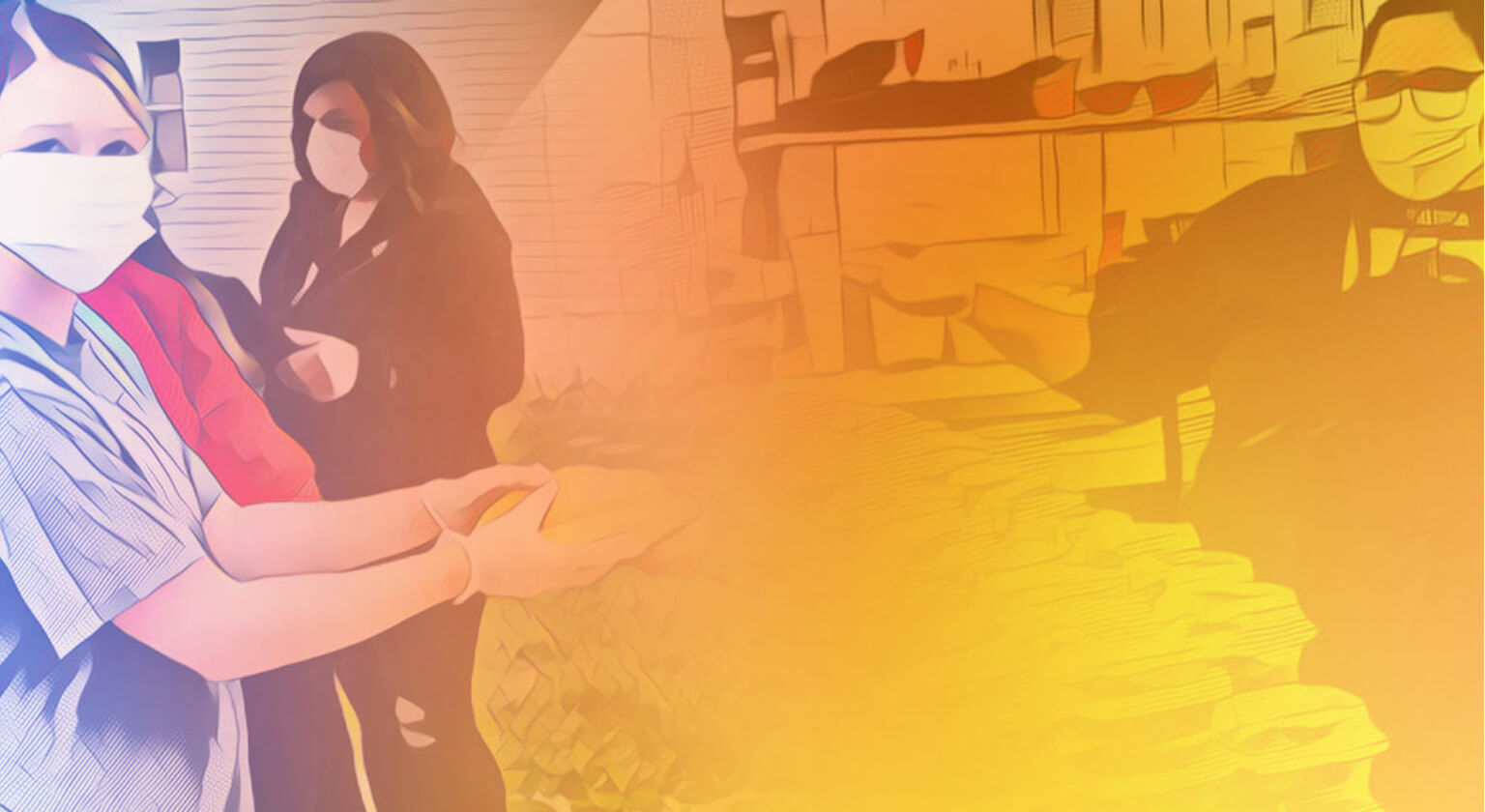People are making a difference during the coronavirus pandemic
To celebrate #GivingTuesdayNow, we are lifting up the inspiring stories of how individuals and organizations, including communities of faith, are responding to the COVID-19 pandemic.
We are encouraging generosity to local nonprofits, including houses of worship, doing vital work in our communities.
Below, you can read just a few of the many stories from the BJC community who are adapting and serving during this unprecdented time, continuing to stand for faith freedom for all during our pandemic and partnering with others. They are serving their houses of worship and their greater communities in new ways and meeting needs they never saw coming.
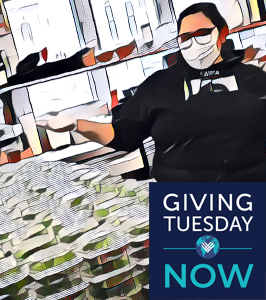
Ministries in Manhattan
From Metro Baptist Church, a BJC partner congregation
Rauschenbusch Metro Ministries (RMM) is the community outreach nonprofit arm of Metro Baptist Church. For the last month and a half, as most of New York City has been shut down for the greater safety of all, RMM has remained open as an essential service. We are providing support for thousands of the most vulnerable individuals in our city, which has been a hotspot during this pandemic.
During this challenging time, RMM has distributed more than 1,200 food pantry bags, 450 prepared meals and 650 toiletry and snack bags. With so many people out of work, RMM has seen a 30% increase in individuals seeking emergency support in the past 45 days.
In addition to emergency services, RMM has continued to provide ongoing remote support to participants in our life skills empowerment programs for military veterans and survivors of domestic violence who have experienced homelessness. Our staff manages weekly online gatherings and workshops to provide social support to those who are isolated and/or at risk.
Similarly, RMM’s youth programming staff facilitates weekly check-in calls to children and teens who are learning from home. And in the midst of it all, RMM staff have continued to manage our rooftop farm, growing fresh vegetables that are distributed in our food pantry bags.
Feeding the community in new ways in Boston
From Darrell Hamilton, 2017 BJC intern
First Baptist Church in Jamaica Plain, through our non-profit Centre For Faith, Art & Justice, has provided hot community meals to our Boston neighbors for several years. The purpose of our community meals program is to supply meals that serve elders, children, low- income families, persons with disabilities, individuals experiencing homelessness, and other vulnerable communities in Boston.
On March 16, due to the COVID-19 “stay-at-home” order, we immediately shifted our community meals program to home delivered hot meals and grocery supply.
Since that time, our meals delivery program has increased from serving 40 to 360 individuals experiencing food insecurity. Through our partnerships with the Boston Food Bank and a community farm share, we prepare and provide 360 people with three hot meals per week, totaling 1,080 meals per week. Additionally, we provide 230 boxes of groceries to families once a week.
We are able to meet this need because our church houses one of two commissary kitchens in the city of Boston. We are equipped with a commercial oven, refrigerator, freezers, sanitation sink system and prep space. Food is prepared by professional chefs and certified Safe Serve kitchen staff.
None of this would be possible without our current number of 114 people who volunteer their time to help us coordinate and distribute food to our Boston neighbors.
Blessing the hands of medical workers in Illinois
From Megan Pike, 2016 BJC Fellow
I am a chaplain at Blessing Health System, and I continue to serve patients at the bedside while also supporting staff in this unique time. We celebrated Passover and Easter in non-traditional ways due to COVID-19.
This year’s Maundy Thursday was different from any other I ever conducted at Blessing. Here’s a video I made about a blessing of the hands — something to reflect upon as you continue to follow CDC guidelines to wash your hands for 20 seconds.
Back home from my internship, feeding students in Missouri
From Halle Herbert, 2020 BJC intern
When the pandemic started, I was halfway into my BJC internship in Washington, D.C. I was enjoying a new city full of adventures, but I was homesick, too. I never thought a health crisis would send me home.
In my hometown in Missouri, my mother is the elementary school principal. As the district is closed for the rest of the year, they are still providing sack lunches at various locations in town. During this pandemic, I volunteered to help out my community through distributing school lunches to the students in the district. I help out by passing out lunches, breakfast for the next morning, and Mustang Packs (weekend snack packs) for specific students. This opportunity to give back has really opened my eyes to the need we have in our community, and it has given me so many great ideas to move forward with after this pandemic ends!
Feeding first responders and serving senior adults in North Carolina
From Lynn Brinkley, vice-chair of BJC’s board
Now that my church, First Baptist Church in Fayetteville, North Carolina, has switched to online services, I spend my Sunday mornings running our church’s engagement with others on social media during the service. Our team meets weekly on Zoom to coordinate the upcoming service and how we can best offer the presence of Christ virtually. We are mindful to always include our hashtag, #WelcomeHomeToFamily, in everything we post because what is most important for us is that social distancing does not disconnect our church family. We also hosted a free lunch recently for all first responders.
Additionally, I have been journaling. I am keeping a record of what has been happening around me personally, with my family, and in the life of my church during this national pandemic. I am recording my reflections, what I hear God saying to me, what I hear others are doing to cope, and I am hoping to lead a survey with our church members when this is all over.
I am particularly interested in assessing our senior congregation to ask them:
(1) How could the church been of better service to you during the pandemic?
(2) What did you need the most (aside from prayer)?
(3) What means of communication were you most comfortable with (phone calls, Zoom, Facebook Live, etc.)?
Meeting the needs of families in Virginia
From Meg Thomas-Clapp, BJC board member
McLean Baptist Church houses SHARE inc., a food pantry and resource center that meets immediate needs for families in our area. With social distancing, our volunteers have helped adopt a touchless drive through system for clients as well as delivery to those without access to transportation.
Volunteers are now practicing social distancing and precautions to pick boxes in small teams throughout the week, greatly upping the amount of time needed to prepare for days SHARE is open! We’ve also expanded our rent relief program to support many who have lost their jobs in the pandemic.
Convening the “God Squad” in New Orleans
From Elizabeth Mangham Lott, BJC board member
One thing I’ve done, mostly for my own creative pleasure, is start a webcast with clergy friends about pastoral and rabbinic roles during this time. Baptist News Global wrote a piece about it.
Otherwise, we’re plugging away with a combination of YouTube/Zoom worship and lots of online church community. I’m tired but grateful for a safe home, flexible jobs my spouse and I can do from home, a great neighborhood for walking and biking, time to garden and bird watch, and an engaged congregation that is committed to meeting together.
Serving in San Antonio
From Jesse Rincones, BJC board member
In the midst of the changes caused by the COVID-19 pandemic, a predominantly Hispanic Baptist congregation in San Antonio continues to minister to their community. Agape Baptist Church‘s food pantry ministry serves around 32 families each week. Once a month, they serve 80 senior citizens with a commodity box. The families served tend to be from Hispanic and immigrant populations.
Implementing key safety changes has allowed the ministry to continue to serve families facing food insecurity. Dispensing with weekly paperwork and providing drive-up options allow clients to stay in their cars for contactless service. The church’s children’s ministry donated all their masks and gloves to the volunteers for enhanced social distancing protection.
Additionally, each of the church’s ministries have donated from their individual ministry funds to purchase grocery store gift cards to help even more neighbors in need.
Volunteers and church members have been blessed by the pastor, his wife, and five daughters as they make “drive-by visits” sharing cupcakes and encouragement … from a distance of course!
Spreading information and music from Maryland
From Curtis Ramsey-Lucas, BJC board member
Since the beginning of March, we have been covering the coronavirus pandemic in The Christian Citizen, including articles on ministry responses, what to think about when moving services online and spiritual care practices. We’ve also published guidelines for faith and community leaders from CDC and ABHMS (American Baptist Home Mission Societies). We’re curating all that material, some 30 articles thus far, in a featured series on our website: responding to Covid-19.
On a personal note, I’ve been helping University Baptist Church in College Park, Maryland, make the transition to online worship and ministry. My wife, Carol, has been continuing to provide pastoral care as a chaplain to veterans and staff impacted by the crisis at the DCVA Medical Center.
Lastly, each Wednesday I play a mid-day concert on my front porch, which I stream on Facebook. Our neighbors enjoy it. Several have brought chairs and sat on our front lawn, and friends from across the country are tuning in weekly for a mid-day escape from staying at home.
Adapting campus ministry in North Carolina
From Luke Perrin, 2018 BJC intern
I’m in my first-year at Duke Divinity School, and a Cooperative Baptist Fellowship (CBF) Collegiate Ministry Intern at UNC Chapel Hill. In the face of college campuses closing, CBF-affiliated campus ministries are adapting to life without the physical space of campus. Whether it be through small group meetings and worship nights on Zoom, group movie nights with Netflix Party, or simple virtual spaces for connection, we’re relearning pastoral care, chaplaincy and community building in the midst of uncertainty.
So many of the tropes of college ministry revolve around the idea of physical space, and that loss is felt. Office hours in coffee shops with students would usually contain several attendees, but replicating that experience of virtual mediums has been a challenge. The same goes with fellowship around the table, as meals together play a crucial part in building a community, just as Christ used meals in his teachings and ministry.

